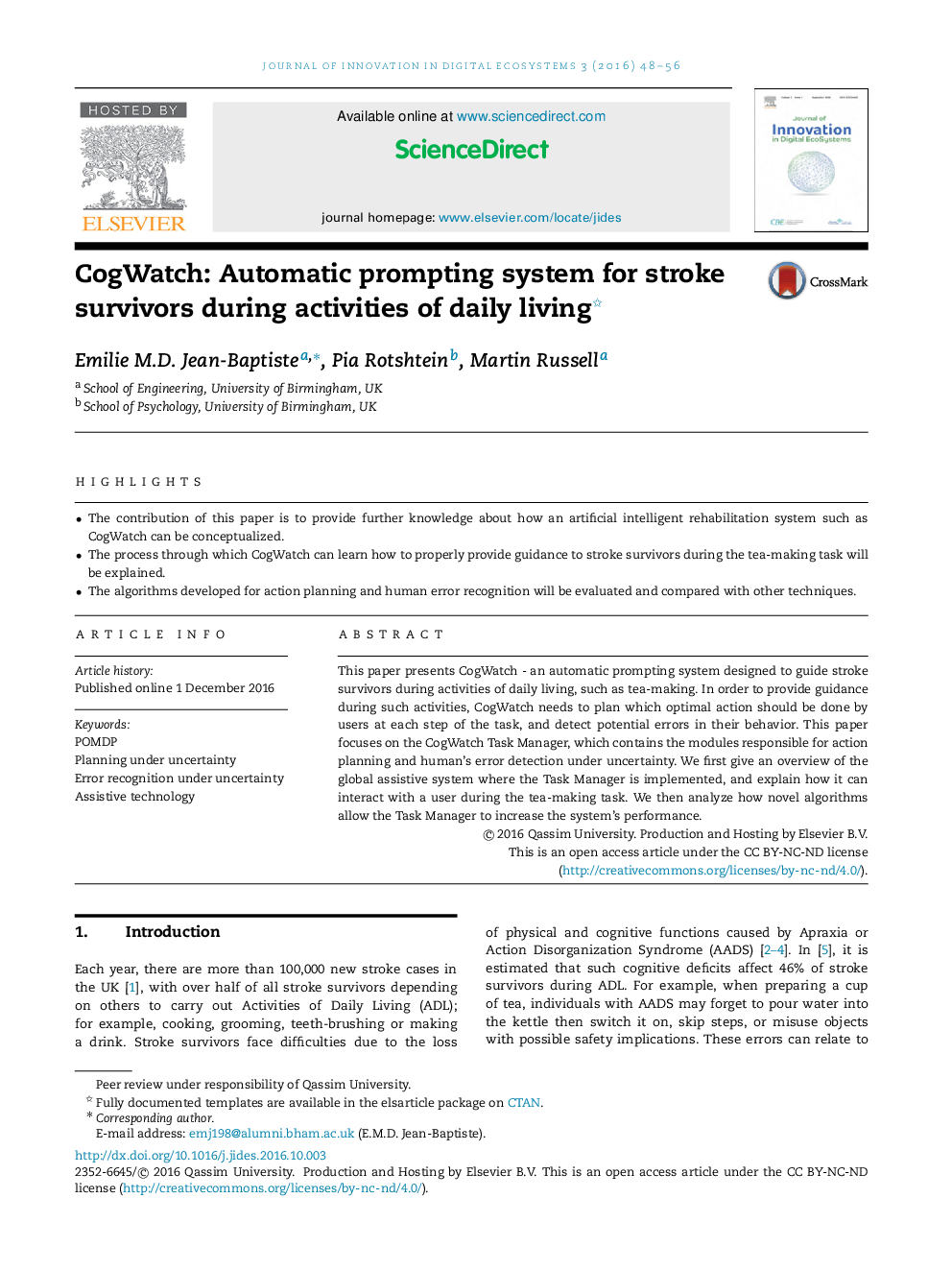| Article ID | Journal | Published Year | Pages | File Type |
|---|---|---|---|---|
| 4951343 | Journal of Innovation in Digital Ecosystems | 2016 | 9 Pages |
â¢The contribution of this paper is to provide further knowledge about how an artificial intelligent rehabilitation system such as CogWatch can be conceptualized.â¢The process through which CogWatch can learn how to properly provide guidance to stroke survivors during the tea-making task will be explained.â¢The algorithms developed for action planning and human error recognition will be evaluated and compared with other techniques.
This paper presents CogWatch - an automatic prompting system designed to guide stroke survivors during activities of daily living, such as tea-making. In order to provide guidance during such activities, CogWatch needs to plan which optimal action should be done by users at each step of the task, and detect potential errors in their behavior. This paper focuses on the CogWatch Task Manager, which contains the modules responsible for action planning and human's error detection under uncertainty. We first give an overview of the global assistive system where the Task Manager is implemented, and explain how it can interact with a user during the tea-making task. We then analyze how novel algorithms allow the Task Manager to increase the system's performance.
